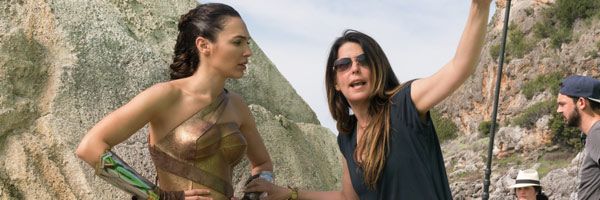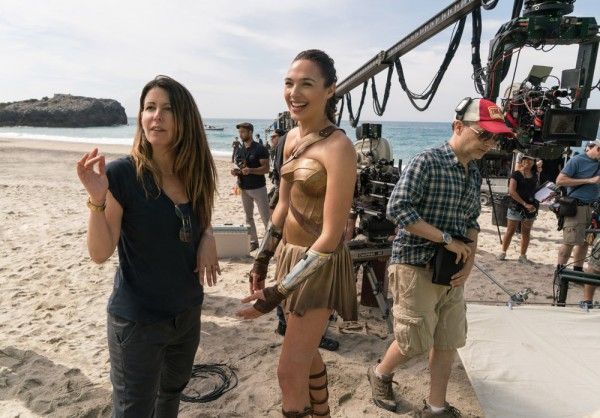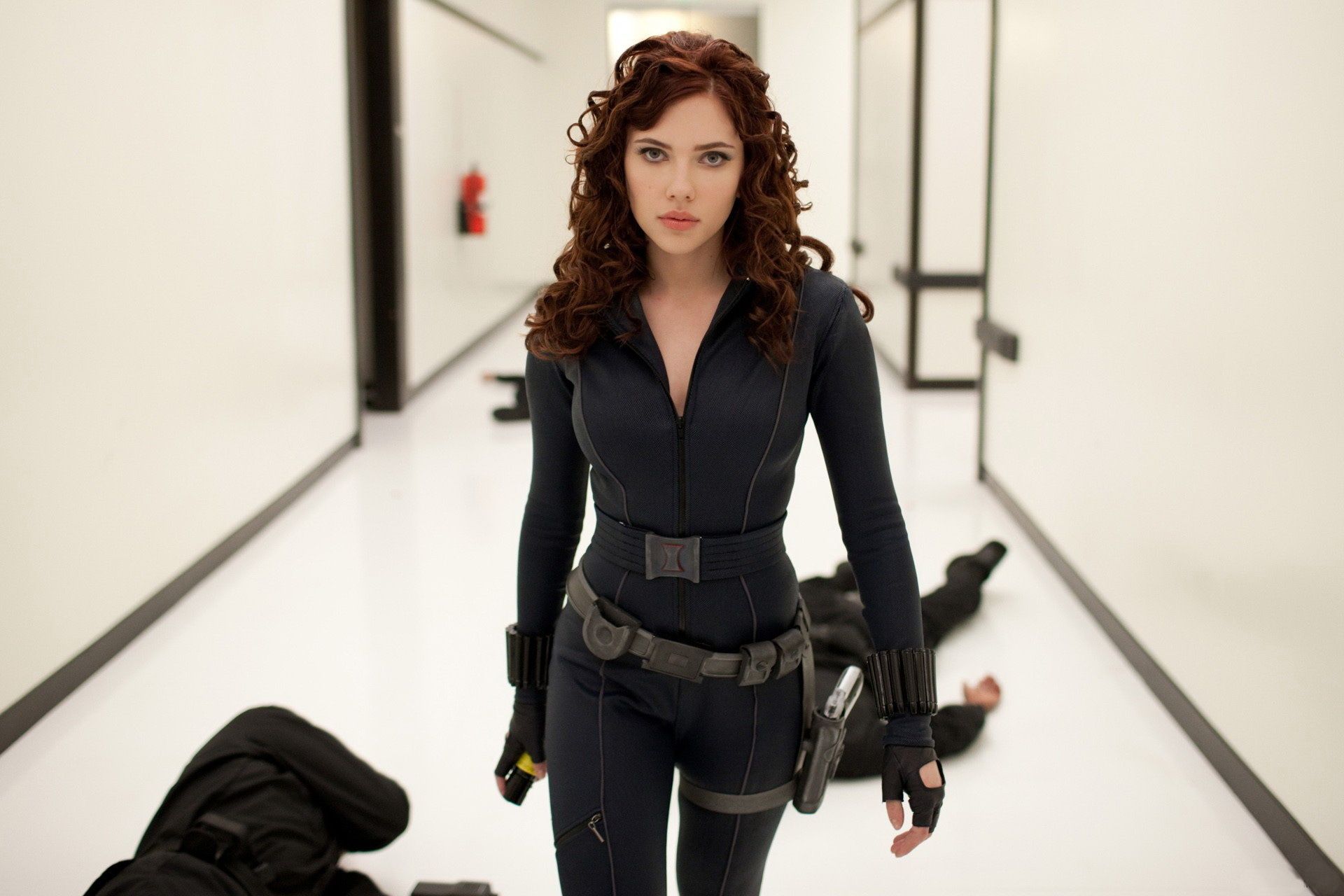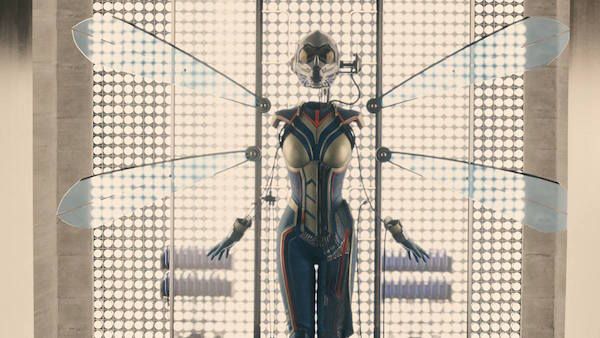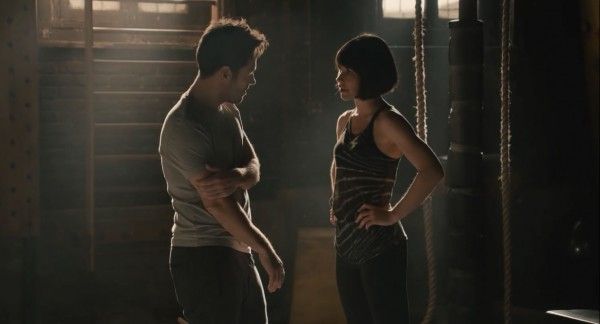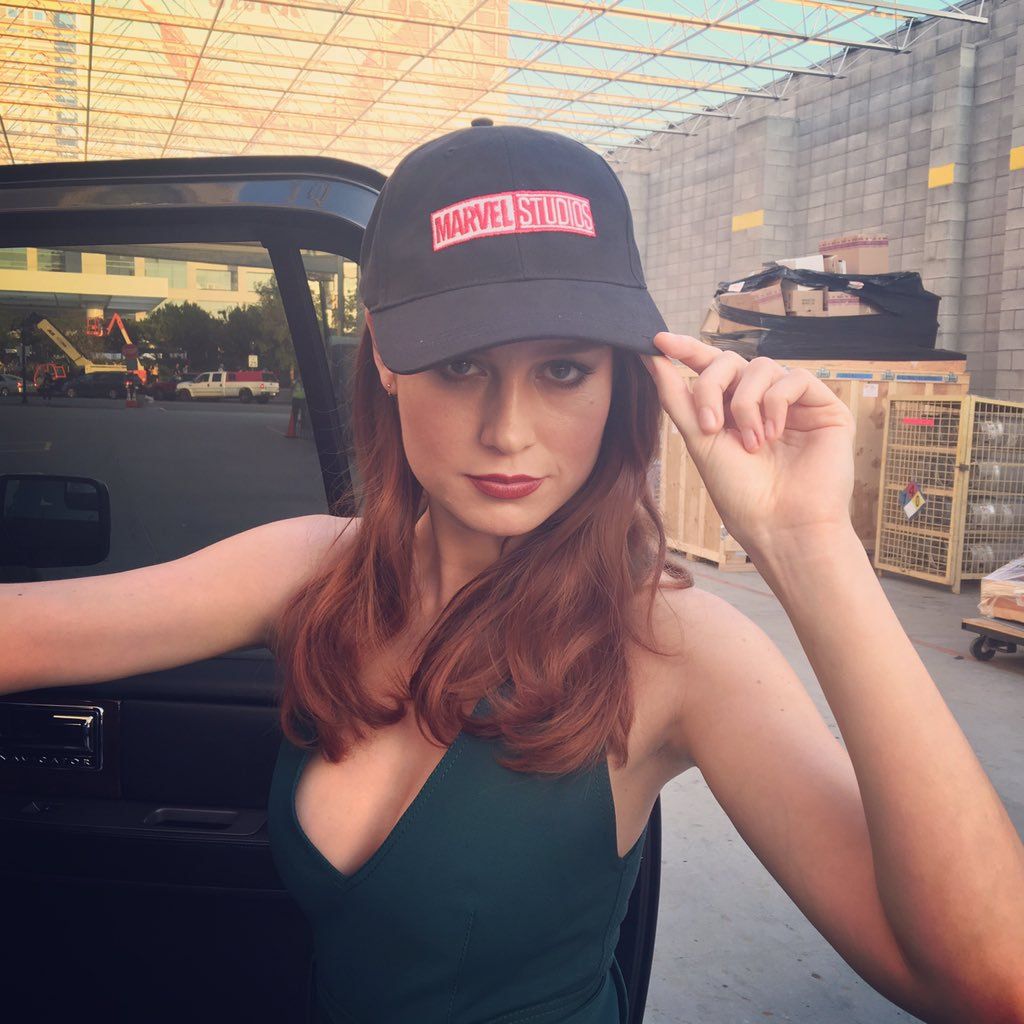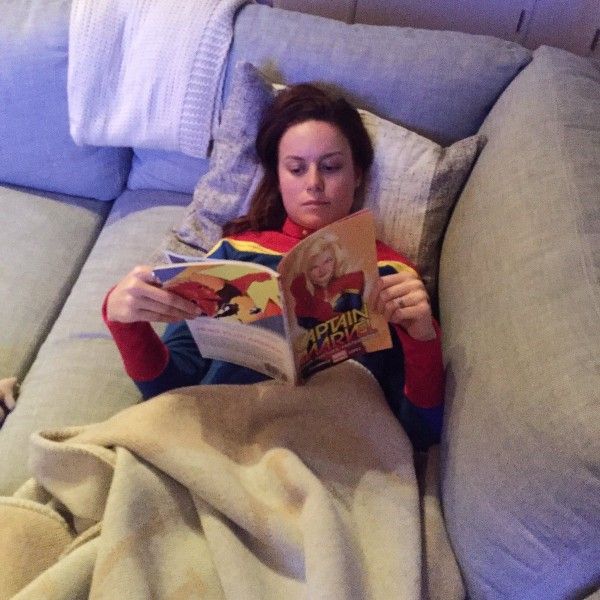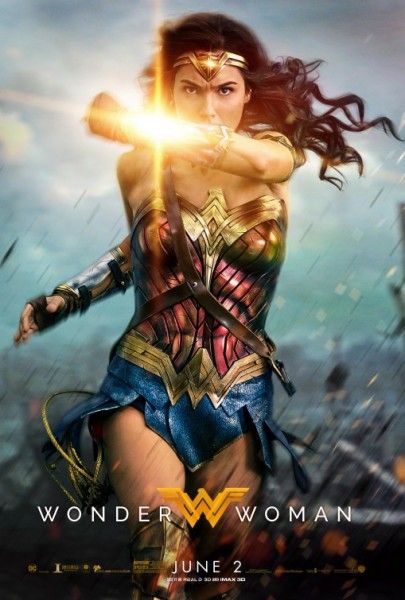in 2004, Warner Bros. attempted to rollout the superheroine film Catwoman with Oscar-winner Halle Berry in the lead. 20th Century Fox and Marvel followed up a year later with a similar attempt in Elektra, starring Golden Globe-winner Jennifer Garner. Needless to say, neither film panned out as well as the studios would have hoped, critically or financially. And without even mentioning the cinematic abomination that was the 1996 Dark Horse Comics abomination Barb Wire, it's clear that female-led superhero/comic book films have had a very difficult time finding acceptance among critics and audiences alike over the years.
Patty Jenkins' Wonder Woman has changed that, perhaps only temporarily, but hopefully permanently. The extent of the film's impact is only speculation at the moment, but the reasons for its success should be clear: It's a thrilling action film shepherded by a highly competent writer/director, led by the rising star that is Gal Gadot who brings heroism and heart to her performance of the beloved comic book character, all supported by a solid script that pays homage to the Amazonian princess while tapping into contemporary social issues. Wonder Woman earns high marks in every possibly category you can think of, with both critics and audiences rewarding these achievements with positive reviews and hard-earned dollars.
Wonder Woman's across-the-board success will certainly impact the future of the DCEU, but it may also influence superhero films and Hollywood productions in general. The most obvious movie-making folks who should be taking note of Wonder Woman's success is, of course, the talented team behind Disney/Marvel's MCU. The OG of the superhero cinematic universe, the MCU has released 15 films with many more on the way (including the shared Spider-Man: Homecoming with Sony); one of these upcoming projects will feature a female co-lead (Ant-Man and the Wasp) while another boasts a solo female lead and female co-director (Captain Marvel), all firsts for the MCU. Clearly, the DCEU beat the MCU to the punch on this one, so what can Marvel's creative team learn from their competition?
'Black Widow'
The first thing some Marvel exec somewhere might be thinking is, "Well, we maybe should have gone ahead with that Black Widow movie after all." Granted, a standalone/spinoff tale about a Russian spy/assassin is a harder sell than a big-screen adaptation of one of DC Comics' most famous superheroes, but the highly bankable Scarlett Johansson has proven herself more than capable of carrying an action film (though the box offices of Lucy vs Ghost in the Shell muddy the waters a bit.) Johansson's Natasha Romanoff was introduced way back in 2010's Iron Man 2 and has been a player in the MCU ever since. A solo Black Widow film has literally been mulled over by Marvel folks behind the scenes for at least that long; they've just never pulled the trigger. That's unfortunate, not just because a spy movie would have spiced up the MCU's often formulaic storytelling style and rather narrow genre boundaries, but it would also have given them the edge in the modern, female-fronted superhero story category, a spot now occupied by Wonder Woman.
This is as good a place as any to highlight a particular strength of the DCEU that is in opposition to a weakness in the MCU. Warner Bros., for better or worse, seems to grant their creative team and directors much more autonomy per picture than does the Disney/Marvel machine; whether this is a business decision, a creative decision, or a function of the separate studios' architecture, I don't know. But what's clear is that Man of Steel and Batman v Superman: Dawn of Justice are very much Zack Snyder's movies, just like Suicide Squad is David Ayer's, and Wonder Woman is Jenkins'. That means that any strong takes on the part of the director are glaringly obvious in the DCEU, while the MCU tends to blend and smooth these spikes in personality so that every film fits into a formula, with only brief glimpses of uniquely creative vision shining through. The MCU plays it safe, and that has worked consistently well. The DCEU is willing to take more creative chances, a "gamble" that has paid off in Wonder Woman.
'Ant-Man and the Wasp'
Marvel's first "risky" film, when it comes to, ya know, letting a woman share the title credit, is the July 2018 release of Peyton Reed's Ant-Man and the Wasp. Evangeline Lilly was previously introduced as Hope van Dyne in Reed's 2015 film and fans were delighted when a shot of the comic book character's Wasp costume was displayed on screen. The inclusion of Wasp alongside Ant-Man is a big deal in the MCU, but also a safe play for Marvel since they're taking two lesser-known characters and allowing them to share the title and headlines.
In Reed's film, which was a Frankenstein's creation built in part by screenwriters Edgar Wright, Joe Cornish, Adam McKay and star Paul Rudd, Hope van Dyne was a feisty and capable woman who was a board member on her father's company, trained Rudd's Scott Lang in combat, and played a big part in taking down corrupt CEO, Darren Cross. In other words, Hope is a well-rounded character babysitting a goofball who happens to inherit some powerful technology constructed by minds far more gifted than his will ever be. While Hope/Wasp's second-fiddle character didn't get a chance to shine too much in Ant-Man, I'm hoping that the pure personality on display from Gadot as Diana and Wonder Woman--and the positive reaction to it--will boost Marvel's confidence in the fact that fans want to see strong, empowered, and fierce women on screen, especially as costumed superheroes.
Another plot point in Wonder Woman was the relationship between Diana and her mother, Hippolyta (Connie Nielsen), which was good but not great since there was no resolution to their conflict (yet ... perhaps in the sequel?). Ant-Man and the Wasp would be wise to play on this aspect of Lilly's character since Hope suits up in her mother Janet van Dyne's costume. Adding to the drama is the fact that Janet had previously sacrificed herself to the Quantum Realm in order to disable a Soviet missile; that's a great story to mine further in order to give Wasp a little extra drama to play with in the sequel. And since Lang managed to return from the Quantum Realm, maybe there's hope for Janet to do the same ...
'Captain Marvel'
This is probably the first MCU film that comes to mind when thinking about how Wonder Woman will affect future superhero movies. But while it's a worthwhile conversation to compare and contrast the films themselves or how the comic book characters and their powers stack up, it's senseless to pit Gadot against Larson, or director Jenkins against co-director Anna Boden, so I won't be doing that. However, I can't imagine a reality in which the Captain Marvel team isn't paying attention to Wonder Woman in order to analyze what the DCEU did right with the super-successful superheroine film.
Carol Danvers, a.k.a. Ms. Marvel, a.k.a. Captain Marvel, may not have been around in comic book lore as long as Wonder Woman, but she's also regarded as Marvel's marquee female superhero. (Maybe someday 20th Century Fox will remember that they have the rights to such characters as Storm, Rogue, Jean Grey, etc., though they are working on a Silver Sable and Black Cat film.) She also comes fully loaded with social commentary, having been borne of the "modern woman's quest for raised consciousness, for self-liberation, for identity," as writer Gerry Conway put it during his late 70s run. There was also the controversial rape of Ms. Marvel in 1980's "The Avengers #800" which led to recognition and changes in the character's story in the years that followed. It's safe to say that the modern iteration of Captain Marvel is very much a symbol of women's rights and female empowerment, and that Larson is the perfect choice to play her.
I don't know just how much studying of Gadot's performance Larson will be doing, but I can imagine both the actors and their characters getting along just fine, despite the DCEU / MCU divide. Gadot's Diana / Wonder Woman portrayed an incredibly strong superheroine who saved the day by standing up to weak-willed and evil-minded men in order to fight injustice and put an end to war, doing so by giving in to the powerful forces of love and self-sacrifice. But while the powers of Wonder Woman and Captain Marvel are comparable, and their origins are equally "comic booky", their personalities will likely set them apart.
In the mid-2000s "Civil War" storyline, Captain Marvel sided with Tony Stark / Iron Man on the side that favored the Superhuman Registration Act, fighting against Captain America's team; she also sides with the idea of keeping the Earth safe using precognition to predict crimes in the 2016 run of "Civil War II." I'm not sure where Gadot's hero, who defends the weak and stands for love and peace, would fall on these debates, and to be honest, we're not even sure if these facts will make it into the Captain Marvel movie itself. Additionally, we don't yet know if Larson will be introduced as Danvers or Captain Marvel in one of the many MCU films to come (or even in Spider-Man: Homecoming) since the character has been a big part of The Avengers team over the years. Much like Gadot's Wonder Woman was introduced to audiences via a scene-stealing, big-screen moment in Batman v Superman, Larson's superhero could similarly make a splash before her 2019 solo debut. This hasn't been officially confirmed, but I'd be amazed if we didn't see Captain Marvel sooner than March 8, 2019.
One final note: There's plenty of room in this big, wide, cinematic universe for all sorts of superheroes to play. So rather than pit Wonder Woman against Captain Marvel for the next two years, let's instead focus on how the DCEU, the MCU, and Hollywood in general can deliver more solid films with female leads to the delight of audiences everywhere.
Take a cue from other big names in the DCEU and MCU by seeing how they responded to Wonder Woman's success below:
And for more of our coverage on Wonder Woman, be sure to check out our recent write-ups below:
- ‘Wonder Woman 2’: Patty Jenkins Already Knows Where She Wants to Set the Sequel
- ‘Professor Marston & the Wonder Women’ Teaser Reveals a Complicated Comic History
- ‘Wonder Woman': The God Killer Explained
- Why Wonder Woman Is the Superman the DCEU Needed
- Weekend Box Office: ‘Wonder Woman’ Lassos $100.5 Million Domestic Opening

